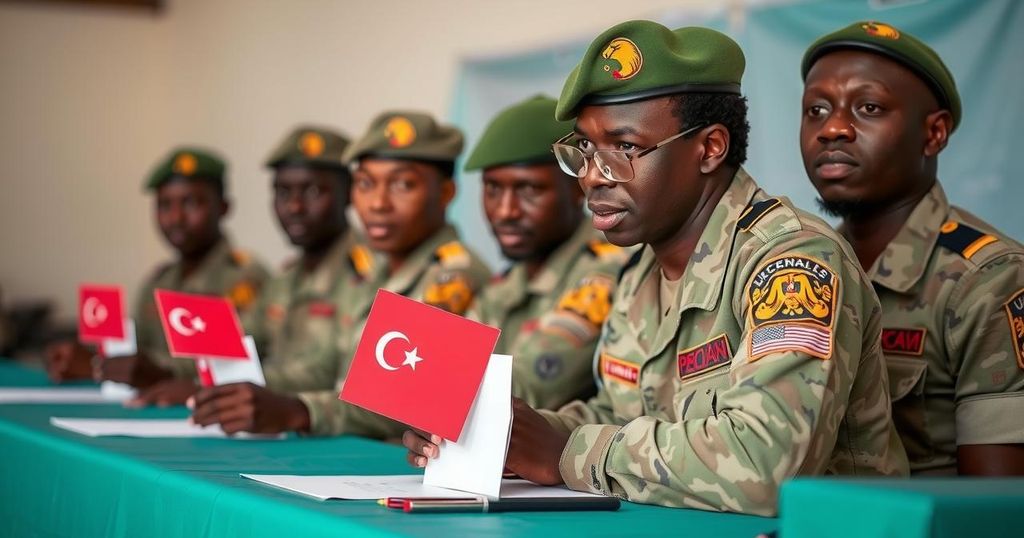Chad’s Election Officials Seek Military Support Amid Rising Political Violence
Chad’s electoral commission has sought military protection amid rising violence ahead of the December 29 elections. Opposition groups are using force to disrupt campaigns of the ruling MPS party. The elections are intended to conclude a transitional period following former President Idriss Deby’s death, but they face criticism as a power consolidation effort by the current presidency, leading to heightened tensions in the region.
In the lead-up to the scheduled elections on December 29, Chad’s electoral commission has requested the military’s protection for election officials and candidates due to a marked increase in violence. Reports indicate that opposition supporters have resorted to using clubs and iron bars to obstruct rallies organized by the ruling Patriotic Salvation Movement (MPS) across various cities and towns. The National Election Management Agency (ANGE) has cited numerous attempts to disrupt campaign events, raising concerns about escalating tensions that could potentially result in armed conflict if military support is not deployed.
The elections aim to conclude a three-year transitional period that began after the death of former President Idriss Deby Itno in April 2021. Over 8.3 million out of Chad’s 18 million citizens have registered to vote, with approximately 180 political parties nominating nearly 1,300 candidates for parliamentary seats and several thousand others for local councils. Despite the high number of candidates, a coalition of over 75 opposition parties and civil society organizations has denounced the electoral process as a deceptive facade, accusing President Mahamat Idriss Deby Itno and the MPS of manipulating the elections to maintain their hold on power.
Recent clashes have seen opposition groups attacking MPS campaign convoys in cities like Ndjamena and Moundou, while the military has reportedly dismantled roadblocks set up by opposition supporters to hinder MPS activities. Avocksouma Djona, head of the Party of Democrats, expressed his party’s demand for the postponement of the elections, asserting that the election management officials are loyal to Deby, who, in turn, wields significant control over the constitutional court, thus potentially skewing the electoral outcomes in his favor. While Deby claims that the upcoming elections will be conducted fairly, dissenting voices within the opposition maintain that the elections are likely intended to cement his power rather than restore civilian governance.
Chad has experienced significant political upheaval following the death of President Idriss Deby Itno, who ruled for 30 years. His son, Mahamat Idriss Deby Itno, became the transitional president after his father’s demise, leading to a protracted transitional period marked by political tensions and calls for reform. The current elections are seen by many as a critical juncture in Chad’s journey back to civilian rule, yet they are marred by allegations of suppression and manipulation from the ruling party, raising questions about the legitimacy of the electoral process.
The upcoming elections in Chad on December 29, 2023, illustrate a complex landscape of heightened political tensions and potential violence amid accusations of electoral manipulation by the ruling party. The request for military support underscores the precarious situation faced by election officials and candidates. With a significant number of individuals registered to vote and a multitude of candidates contesting the elections, the legitimacy of this political process remains in question, as opposition parties warn against the undermining of democracy under the pretense of returning to civilian rule.
Original Source: www.voanews.com




Post Comment